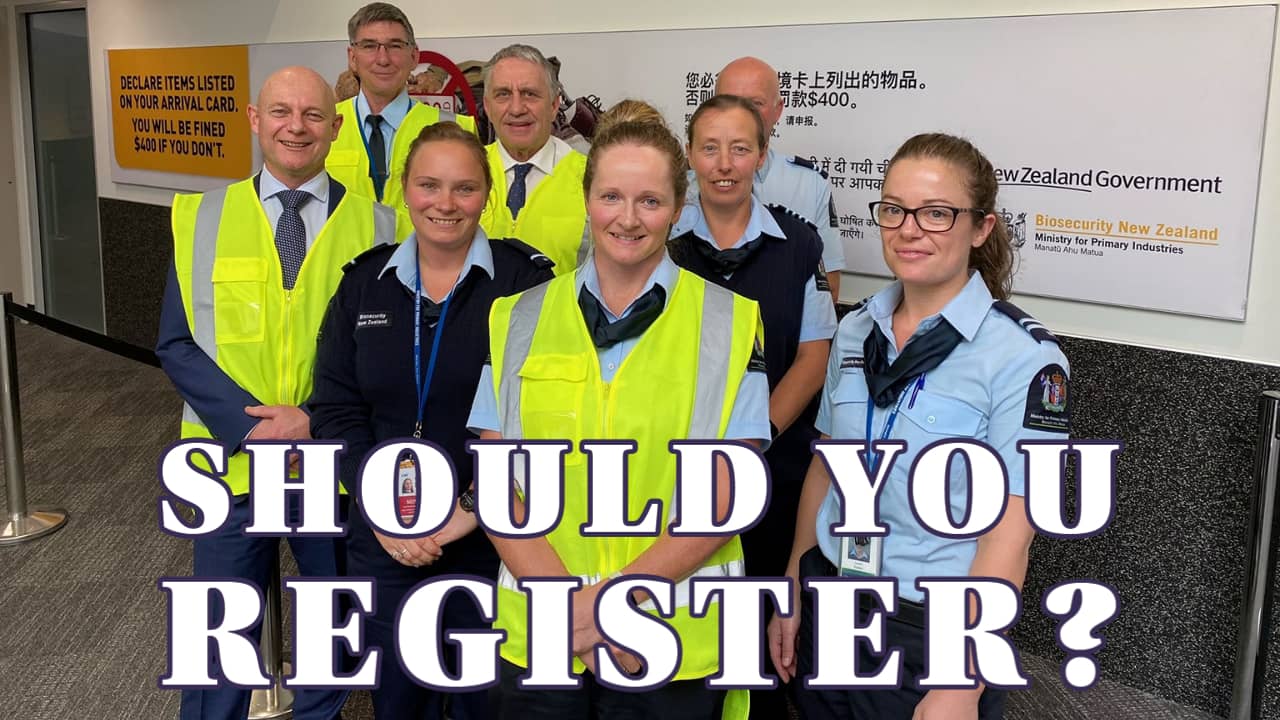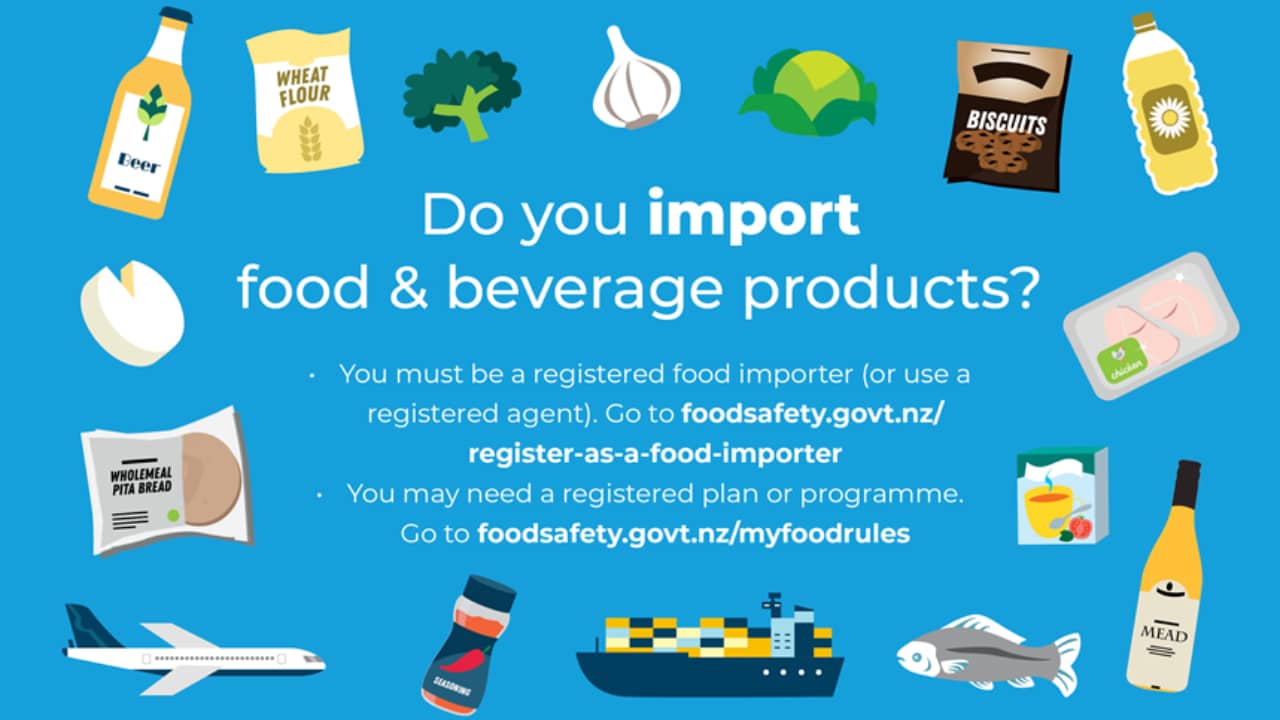
Food & Drink Importers: Beware of Delays and Extra Costs
3-minute read
Importing food, drinks and/or ingredients? Check that you are properly registered to avoid delays
To avoid unnecessary delays to their next consignments, importers of food for sale need to have a valid Food Importer registration and complete their Intended Use declarations for all consignments of food, drinks, and ingredients.
If you import food, drinks, or ingredients for sale (including goods for further processing or re-export), you must be registered as a food importer with New Zealand Food Safety (part of the Ministry for Primary Industries).
Alternatively, you can use an agent who is registered to import your food for you.
As part of New Zealand Food Safety’s improvements to the food safety system, from 30 June 2021, there will be an automatic check of Food Importer registrations for all consignments intended as food for sale.
This includes tariffs in Chapters 2-5, 7-13 and 15-22 and codes 0602.90.00.01G and 1404.90.00.39C of the Working Tariff Document (customs.govt.nz/business/tariffs/working-tariff-document).
From 30 June, food consignments imported into New Zealand by unregistered importers will be held, until a Food Importer registration number is issued.
New Zealand Food Safety’s Director of Food Regulation, Paul Dansted says: “Registration helps to ensure food being imported for sale is safe and suitable for customers, and provides a critical link in the chain to assist in tracing food products if a problem occurs”.
“These registration checks reflect an ongoing, fair, and robust application of New Zealand’s food safety rules,” Dr Dansted says.
These rules apply to everyone importing food for sale including:
- processed food;
- health and dietary supplements;
- alcoholic and non-alcoholic beverages;
- fresh fruit and vegetables;
- grains, seeds, and nuts;
- confectionery;
- and food for promotional giveaways.
Imported food includes ingredients used in the manufacturing of food and beverages, such as hops. For more information, see the Food Act 2014 definitions of food and sale (legislation.govt.nz).
Your Intended Use declarations are crucial, and getting this right will facilitate efficient border clearance. This also includes products with Intended Use declarations of “FP – Further Processing” and “Re – Re-export”.
Importers in these categories who believe their intended use is not food for sale can tick the ‘Manual Food Authority/Clearance Certificate Referral’ (MFR) option in Trade Single Window when making their lodgement, and can then provide relevant information to border Food Safety Officers.
New Zealand Food Safety has published advice on Intended Use coding on foodsafety.govt.nz/register-as-a-food-importer
How do you register?
It is simple and inexpensive to apply. Go to foodsafety.govt.nz/register-as-a-food-importer for easy-to-follow steps on how to register, renew or update your Food Importer registration.
It will take approximately five working days to receive a new Food Importer registration number. So if you need one, don’t delay to avoid storage costs.
“We don’t want anyone to experience an avoidable hold up with their future consignments,” Dr Dansted says.
You may need to also register as a food business under either the Food Act 2014, Animal Products Act 1999 or Wine Act 2003. To find your food rules, go to foodsafety.govt.nz/myfoodrules and complete the online questionnaire.
Questions?
If you have any questions about registration as a food importer, or if you are unsure if the product you import is classed as food for sale, please visit foodsafety.govt.nz/importingfood, email info@mpi.govt.nz or call 0800 00 83 33
Source: MPI (Ministry for Primary Industries)
P.S. Easy Freight Ltd helps New Zealand importers & exporters to save money on international freight and reduce mistakes by guiding how to comply with Customs and biosecurity rules.
➔ Contact us now to learn how we can assist you.

